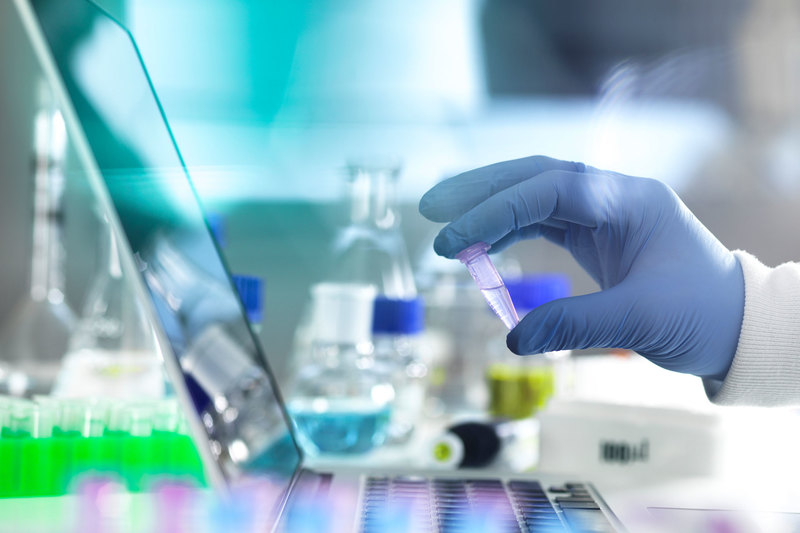H3D to boost drug discovery research capacity at University of Limpopo
19 August 2022 | Story Nadia Krige. Photo Getty Images. Voice Cwenga Koyana. Read time 6 min.
The University of Cape Town’s (UCT) Drug Discovery and Development Centre (H3D) has partnered with the University of Limpopo (UL) on a project to boost drug discovery research capacity at this historically disadvantaged institution (HDI).
The project titled “TB Drug Discovery Hit to Lead Optimization” aims to contribute to finding solutions for Africa’s tuberculosis (TB) epidemic through cutting-edge research. It will expand on existing work focusing on the synthesis of novel compounds active against Mycobacterium tuberculosis (M. tb), the causative agent for TB.
UL’s Professor Winston Nxumalo has been appointed as the principal investigator on the project, while H3D, led by UCT’s Professor Kelly Chibale, will be offering support in the form of training, mentoring and access to infrastructure, including TB biology and drug metabolism and pharmacokinetics screening assays.
Aligning strongly with the South African Medical Research Council’s (SAMRC) capacity-building agenda, the project has been named as a beneficiary of the Strategic Health Innovation Partnerships (SHIP) programme.
“At H3D our transformation strategy is African focused.”
Presented by the SAMRC and funded by the national Department of Science and Innovation, the SHIP programme supports innovative projects focused on the development of new drugs, treatments, vaccines, medical devices and prevention plans. As part of its strategy to increase support for HDIs, the programme also helps develop initiatives to intensify transformation and capacity development in research and innovation in South Africa.
Valued at approximately R3 million over a period of three years, the grant will enable three postgraduate students (one PhD and two MSc) from UL to design and synthesise compounds with input from H3D’s medicinal chemists. They will not only gain access to H3D’s expertise, but also to the centre’s cutting-edge infrastructure, with the students visiting H3D for six to eight weeks at a time to receive lab-based mentorship and exposure to interdisciplinary drug discovery teams.
“This hands-on training will not only develop the student’s expertise in their own discipline, but will also expose them to all aspects of related disciplines and the complexity of integrated drug discovery projects through team work and attending project meetings,” noted Professor Chibale.
Transformative partnerships
Partnering with HDIs also forms part of H3D’s own transformation strategy, explained Dr Susan Winks, who is the organisation’s head of Research Operations and Business Development.
“At H3D our transformation strategy is African focused,” she said. “In addition to focusing on our research on communicable diseases that predominantly affect African patients, we also focus on accelerating drug discovery training and the development of scientific leadership skills.”
Winks said that the strategy is executed on three levels: local (within the H3D centre), national (in partnership with the SAMRC and South African HDIs) and pan-African (through the Grand Challenges Africa Drug Discovery Program in partnership with the Bill and Melinda Gates Foundation).
At a local level, the focus is on creating and embracing opportunities for junior researchers and students to gain exposure to drug discovery research through webinars, job shadowing, internships and job opportunities that include skills development and the possibility of promotion.
“For the national and pan-African level, we strive to give researchers at our collaborator labs access to the same level of support, opportunities and infrastructure that the H3D scientists benefit from,” Winks explained.
Prior to the current project with UL, H3D partnered with Walter Sisulu University from 2018 to 2020 on a malaria drug discovery project. The centre also has a proposal with the University of Venda under review at the SAMRC.
“H3D is the partner to support the training of postgraduate students involved and to raise the quality of the research by giving them full access to H3D drug discovery platforms.”
UL is also a partner and sub-awardee on H3D’s five-year grant from the National Institutes of Health US-South Africa Program for Collaborative Biomedical Research (April 2020–March 2025) titled, “Repurposing kinase inhibitor chemotypes as antimalarials” with Northeastern University and the University of North Carolina.
Winks said that the model for these partnerships entails H3D identifying researchers based at various HDIs and working with them to develop drug discovery project proposals in TB or malaria, which are then presented to the SAMRC for funding.
“These projects are fully owned by the HDI,” she noted. “H3D is the partner to support the training of postgraduate students involved and to raise the quality of the research by giving them full access to H3D drug discovery platforms, infrastructure, lab mentorship through scientific sabbaticals and project management support.”
Boosting drug discovery in Africa
With drug discovery still being an emerging industry in Africa with no formal training and limited infrastructure, these types of partnerships are crucial to building capacity and boosting the field.
Winks emphasised the need to develop skills locally so that solutions can be found for Africans by Africans, which will also assist in driving job creation across the continent. Since the interdisciplinary skills required for drug discovery are learnt on the job through applied, team-based research, this type of project-based training is a particularly effective approach.
“For us, capacity building and sustainability go hand in hand,” said Winks. “We need to create a critical mass of skills in South Africa in order to succeed in our mission to discover and develop innovative, life-saving medicines for African patients.”
Chibale added: “At H3D we have pioneered capacity-building models that are underpinned by networks of research and funding partnerships, involving academia, industry, government, product development partners, philanthropic organisations and high-net-worth individuals.”
 This work is licensed under a Creative Commons Attribution-NoDerivatives 4.0 International License.
This work is licensed under a Creative Commons Attribution-NoDerivatives 4.0 International License.
Please view the republishing articles page for more information.










